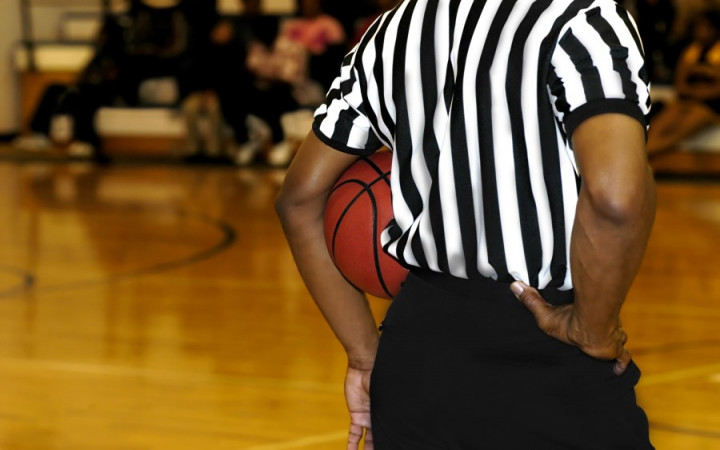Today’s Wonder of the Day was inspired by Isaiah. Isaiah Wonders, “How do you become a referee?” Thanks for WONDERing with us, Isaiah!
Do you love sports? Some people love to play sports. It can be so much fun to lace up your cleats and hit the soccer pitch or football field. Or maybe you put on your suit and splash into the pool. Others might hit the gymnasium to play volleyball or wrestle.
Other people might prefer to watch sports. All you have to do is check the local sports schedules or television listings on any particular night to see how many sporting events there are every single day of the week.
In addition to the players, coaches, and spectators, there is also a small group of people critical to the success of most sporting events. Who are we talking about? The referees, of course!
Referees can be found in all sorts of sports. You may be familiar with the famous black-and-white-striped uniforms that football referees wear. But not all referees wear stripes. Others wear solid color shirts of various colors to referee games in basketball, hockey, baseball, soccer, and all sorts of other sports.
Referees know the rules of the game and watch over game play closely to make sure the rules are followed. They start and end games, keep track of time, make sure players stay safe, and call fouls or hand out penalties when rules are violated.
Have you ever WONDERed how the referees get their jobs? The exact steps to become a referee vary depending upon the sport you want to referee and the place you live. Ask an adult for help researching the exact requirements to become a referee for your chosen sport in your area.
One thing all referees have in common is that they must be experts in the rules of the sport they oversee. If you want to be a soccer referee, you'd better study the rules of the game and know them inside and out.
Most referees start small. Some volunteer to referee youth sporting events to get a taste of what it's like to be a referee. And don't worry if you've never played the sport. That experience might help, but it's not necessary. As long as you know the rules, are really observant, and can do the job, you can be a referee!
The next step is usually to become a licensed referee. You'll likely have to take a class, pass a test, and pay a fee to get a license to referee in a particular sport. You may also have to buy special uniforms to wear during games.
As you get experience as a referee, you often can take additional classes and pass more tests to obtain higher licenses and certifications. For example, you might move from youth league games to high school or college games.
Professional sports leagues usually recruit the best referees from the level below them. For example, if you excel as a referee at the college level, you may be able to become a referee for a professional league.
Standards: CCRA.L.3, CCRA.L.6, CCRA.R.1, CCRA.R.2, CCRA.R.4, CCRA.R.10, CCRA.SL.1, CCRA.W.2, CCRA.L.1, CCRA.L.2




